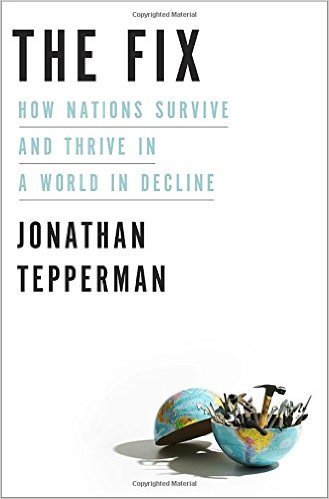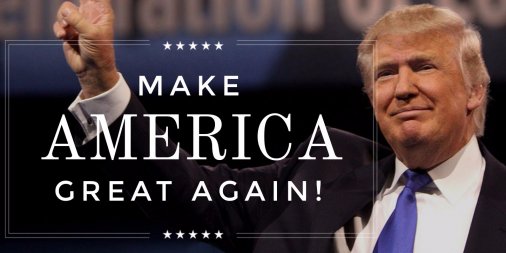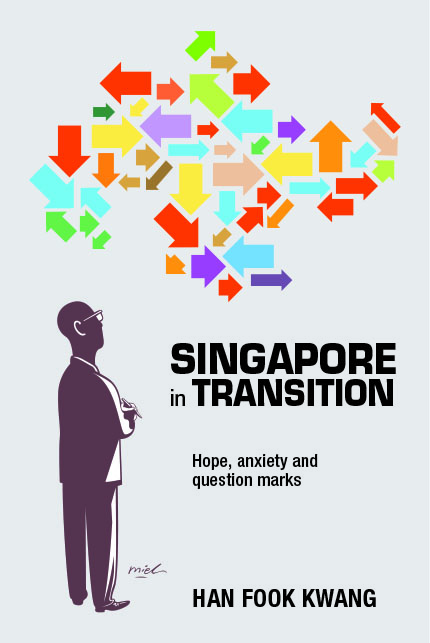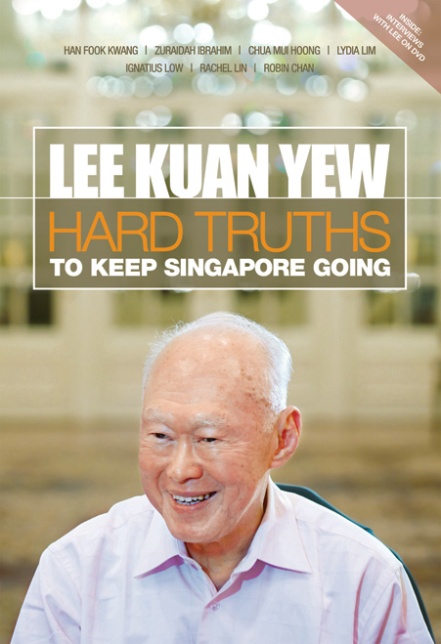Assume the Worst (How Singapore Conquers Corruption). Corruption was an old problem in Singapore. We are very close to eliminating corruption. In 2014, Singapore was ranked the least corrupt state in Asia and 7th in the world. There used to be Chinese triads and secret societies in the 1960s. Our bureaucrats were not up to the task back then. Harry Lee Kuan Yew changed everything and made the eradication of corruption his priority. He survived through the war. He studied in LSE in UK, and then subsequently to Cambridge. Later, he entered private practice. He and a few friends founded PAP in 1954. Corruption was rife back then. By embarking on this campaign, it would differentiate themselves from other parties at the time. By 35, LKY was Singapore’s first PM when they won the GE in 1959. Singapore had no natural resources and there was racial tension at that time. It was 1965, and Singapore went independent after separation from Malaya. LKY realized that Singapore needed good governance. He enforced the rule of law and created a nation that was efficient and secure. He established the CPIB (Corrupt Practices Investigation Bureau). CPIB was granted great independence, like the power to investigate, search, perform house arrests etc. Even top government officials were taken to task for corruption. Now, CPIB has 177 staff. Also, members of the public can report anonymously on CPIB’s website. At times, the government will also punish the supervisors of corrupt officials. CPIB also engages in educational and public outreach programs. The Singapore Government also compensates its officials well, more generally than virtually any other state in the world. Singapore also imposes spending limits, keeps elections short and bans political ads. Singapore is very conducive to doing business and our economy is bigger than Philippines. The fear is that government officials might become too complacent. Fighting corruption need not be an expensive undertaking. Given its size, Singapore is more mobile and can react to threats quickly. Singapore is not a true liberal democracy and LKY has done things to keep his enemies weak and off guard. Singapore is known for restrictions on opposition parties, media etc. Many countries have wanted to learn from Singapore’s success.
Civil servants get a range of cushy benefits, from golf club memberships to discounted vacation packages, and their compensation is pegged to two-thirds the prevailing wage for equivalent private-sector work. – Jonathan Tepperman
You can have the best rules, the best anticorruption agency, but if your politicians are corrupt… nothing is going to save the system. It’s as simple as that. – K. Shanmugam, Singapore’s law Minister
Diamond’s Aren’t Forever (How Botswana Defeated the Resource Curse). Botswana had no resources after it was independent from the UK. A large part of the land was occupied by the Kalahari desert. Even the UK had little presence on the place because of the lack of resources. They didn’t invest in much. Botswana was independent in Sep 1966. There was only 1 doctor for every 26000 people and the infrastructure was non-existent. Somehow, diamond deposits were found. However, many expected the government officials quickly harvested them and leave the people in ruins. To everyone’s surprise, that didn’t happen. For over 30 years, Botswana is the number one diamond producer by value, mining and exporting etc. They have a democratic government and have never fought a war. Income levels are of global middle class. Literacy is at an impressive 87%, among other achievements. Corruption levels are very low. Their magic formula was luck, leadership, and good political and economic policymaking. The good thing was that the UK didn’t bother about them and they could start their own culture. Tswana used a system called kgotla to manage disputes. Basically, they were meetings which encouraged free speech. Major issues were debated. The people respected responsible rule and public participation. Seretse Khama was their first president until 1980. He was a crown prince of Bangwato. He studied in the UK. This gave him a strong grounding in Anglo-Saxon constitutional democracy. He married Ruth Williams, white daughter of a British army officer. Khama hated racial discrimination. He founded the Botswana Democratic Party in 1961 with Quett Masire. Botswana opened up their country to anyone who accepted its values. They also invited foreigners as consultants for their government. This helped to build up the strength of their Civil Service. They made English and Setswana their two official languages. The country managed to achieve a great level of ethnic harmony. The two leaders avoided dictating policy and ensured that there was a cabinet to approve policies. Sometimes, the public was consulted as well. It would have been easier to be a dictator and just execute whatever ideas he had straight away. Also, the government could balance its books. The earnings from diamonds had to be spent wisely. De Beers’ had to channel some of its profits to the government. The government officials were also not corrupt. They were surprisingly thrifty when it came to spending. There is also a saving culture in their people. State salaries were kept low too. Stable budgeting was used to ensure over-expenditure would be detected. With more exports, the value of currency will rise, making imports cheaper. However, this means local industries in Botswana might suffer if they are not careful. It created its own currency and invested in human development and infrastructure. Corruption is common when there are big resource profits to be made. The government launched an anti-corruption campaign. The trick was that not too much power was given to any one person. In 1981, exports fell because of a severe recession. Because of this, the government set up rainy-day funds, one for recurring expenses, one for debt payments etc. Because of this, they could build up their reserves fast. Mineral earnings could only be used for investment expenditure. Mining revenues have plateaued and there is lot of room to groom the private sector too. The current leadership is also not as competent as the first generation. Botswana has managed to reverse the resource curse.
This Land is my Land (Why the Shale Revolution Could Only Happen in the US). This is a great American story. It created the energy revolution that transformed everything. Despite its size, it could still succeed. People feared that oil and natural gas production will be hit. However, renewables are still going strong nowadays. The US managed to discover shale and unconventional oil and gas to boost its energy production. In addition, it is exporting a lot of energy. By 2020, the US will be the number 1 oil producer. The energy boom has pumped a lot of money into our economy. Peak oil has been a distant memory, and we are not running out of oil. Fracking is a dangerous process which might harm the environment. Shale boom has reduced emissions, and natural gas has replaced a substantial % of coal. Fracking has also been made safer. There is now closer monitoring and enhanced testing of well components. Fracking Safety will keep improving. However, a plunge in prices will cause the producers to suffer. Shale wells are cheaper to drill. In the 1970s, oil and gas produced slowed. Shell and Esso joined forces when drilling so as to save costs. Many of the smaller independent players could not afford to drill and find new sources of energy. US shale often lays deep underground. George Mitchell came along, he was a geologist. He kept thinking of ways to extract shale from the north east of Texas. He used water, instead of more expensive gels, to perform the fracking. Water was cheap but many thought that it was not strong enough to crack the rock. Sand and polymer lubricants were added to the water and it worked. The shale produced huge quantities of gas over a few months. This would work for oil extraction too. Mitchell deserved the compliments. The US government had its part to play too. The government paid for studies in unconventional oil and gas and also similar projects. The government also used tax credits to help firms. Public investment in technology certainly paid off in a huge way. US law grants owners not just the land rights and use of the land, but also what lies beneath it as well. Because of this, many energy companies started and wanted to compete with one another. Why have the rest of the world not bore more wells? The issue is that the US had major companies, but with also many small ones. The small ones were willing to work hard, unlike the Europeans. Europe has a lot of shale, but energy companies there fear commitment. Some of Europe has also banned shale gas operations. It is time that Europe start harvesting shale too. China is also reluctant to change as it sticks to reliable methods. Labour in China is cheaper. CNPC, CNOOC and Sinopec are huge companies, which are state-owned. China has other issues to tackle, like the water crisis etc. In recent years, brackish water can be used too. China has partnered with giants like Shell etc and tried to learn their methods. However, due to the different terrain, fracking is made more difficult. Many US companies failed before they could succeed. Also, it could be that government companies are not as nimble to think as compared to smaller companies. China still has a long way to go in extracting its shale potential. The US has been ingenious in this regard and many other countries can learn how to innovate and be as nimble as them.
Manufacture Your Miracle (How South Korea Keeps its Economy Growing, and Growing, and Growing). The North and the South went to war in June of 1950. The country was split along the 38th parallel during WWII. Seoul was decimated during the war, so was their infrastructure and economy. However, in recent times, they have managed to thrive. It is one of the richest countries. There are plenty of skyscrapers etc. The Korean male are also taller than their parents. They have experienced growth at a healthy rate for more than 50 years. In 1963, its economy took off. For other than 2 years, their economy generally expands at more than 7% per year. The country have emerged from crises stronger. It has learnt from its mistakes fast. There are 3 phases: developmental dictatorship; democratization and liberalization. Park Chung-hee was a general who seized power of the state in 1961. He came from humble beginnings. He also studied in Tokyo etc. Their exports were pathetic and many people were subsistence farmers. The Korean war ended in a draw, without resolution. The US was bailing out Korea, but at a price. The Kennedy administration didn’t like Park. Many of the citizens didn’t trust him because he had no experience in politics. He had limited appeal. Exporting goods was a good idea, but the question was what to export? There were no natural resources. Manufactured goods was a possibility. The trick was to mass produce clothes and toys for export. This proved to work and oversaw the country’s transformation. He pumped a lot of money into the country’s infrastructure. He built up a meritocratic bureaucracy. The currency was devalued to encourage exports and banks were nationalized. He jailed many of the Japanese ‘chaebols’ CEOs. Later, he worked with them and offered them incentives. Exports grow from $55 million to $1.6 billion in 10 years. Next, Park targeted other type of industries which were more value adding like electronics, automobiles, iron ore etc. Those CEOs who listened to him were rewarded. There were also protectionist measures which were necessary to protect the local industries from competition. Park was a nasty piece of work. Despite this, some people still loved him. Education improved etc. There were no denying his achievements. It was 1979 now. His successor was Chun Doo-hwan, another General. Some of the corporate leaders were becoming very rich and there was income disparity. In 1987, Korea ceased to be an authoritarian state. Roh Tae-woo was the new President after Chun was overthrown. The chaebol kept growing and intimidated others. Chaebol kept growing and was a threat to others. Everything crashed in 1998, during the Asian Financial crisis. Exports collapsed and the currency value halved. IMF had to bail Korea out and many of the big MNCs laid people off. Kim Dae-jung was elected as President. He started the economic liberalization campaign. He believed in profit and growth. He did not resort to short term populist policies. He got rid of many redundant ministries and restructured some of the major firms. In a strange move, he allowed the underperforming big firms to die or be bought over. Daewoo’s crash prompted a turn-around in Korea’s fortunes. His hard measures helped kick start the economy again. Chaebol were associated with poor quality goods. They were forced to innovate under Kim and had to welcome outside expertise. In the past few years, growth has slowed to 3 to 4% only. Heavy state intervention can be helpful if used at the right time. Instead of causing inefficiencies, it helped. The government did not reward corporate leaders much. If you underperformed, you’d get cut off. However, when technology improves, it is more useful to let the private sector take charge rather than protecting local firms. Despite all its problems, South Korea is still a successful country. Being open-minded and nimble was one of its big successes.
Give to Get (How Mexico Got Its Government Going Again). Pena Nieto was Mexico’s president. However, he was in trouble as he allowed drug lords to escape from prison. Their economy tanked also. However, in actual fact, Mexico hasn’t have such a bad democracy. In Latin America, it is quite big. In 2013, 2014, Nieto did very well indeed. Corruption and crime needs to be brought under better control. He managed to unite the 3 parties warring with each other. One of the parties is Mexico’s Institutional Revolutionary Party (PRI). Nieto was from PRI. However, some criticized him as Nieto was linked to the party’s elite. He had a poor command of English and had a complicated marriage etc. He won the election in 2012 and had to prove people wrong. He brought 3 feuding parties together: National Action Party (PAN) and the Party of the Democratic Revolution (PRD). Nieto managed to bust monopolies, re-structure the energy sector and education system, tax laws etc. It was revolutionary indeed. Before 2012, Mexico was disastrous. Their extraction of natural resources had slowed. Corruption was rife and the economy was ruled by some wealthy oligarchs. PRI and PAN couldn’t get along in the past as one would always oppose their bills in parliament, causing deadlock. After 15 years of infighting, the leaders realized that it was useless and it was time to change. Nieto won with 38% of the vote and realized he needed the support of his enemies. PAN also woke up and realized they weren’t doing well. The two parties started to negotiate. Teaming up with other parties was useful, but it was also necessary to take on bullying oligarchs, unions etc. Nieto was not handpicked by his predecessor. He initiated talks with the other 2 parties for reconciliation. These talks were also kept secret. The energy sector was opened up to market forces. Marriage of conveniences do not last long. It will take time for some of their reforms to work. For structural changes, it takes time to materialize. Job creation has shown signs of improving. However, crime rates remains high. The drug cartels have killed many people.
Gruesome as it was, the slaughter was hardly unprecedented in Mexico. The country has suffered all too many massacres over the years; indeed, an estimated 100,000 people have been killed alone since 2007. – Jonathan Tepperman
DIY Defense (NYC and the Art of the Work-Around). The US federal government is dysfunctional at times. It was 11 Sep 2001. 9/11 was interpreted differently by many people. Michael Bloomberg was the mayor of NY. There was little protection for NYC too and national security was an issue. New York had to try to defend itself. Bloomberg started looking for cops to protect the city. He found Ray Kelly. The federal government didn’t offer NY much help. Tourism was badly hit after 9/11 and Bloomberg needed to restore the city. There was little counterterrorism work and poor co-ordination between FBI and NYPD.







